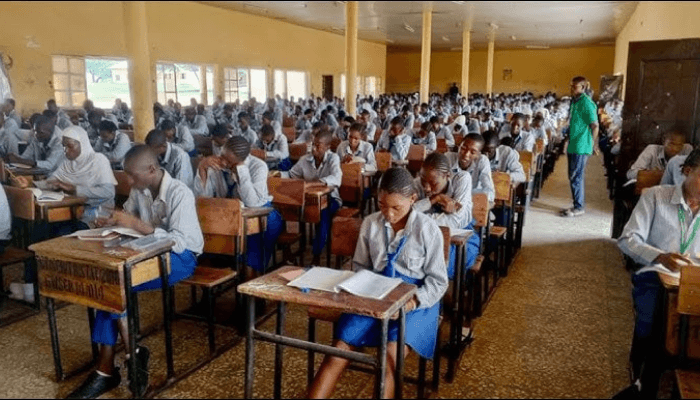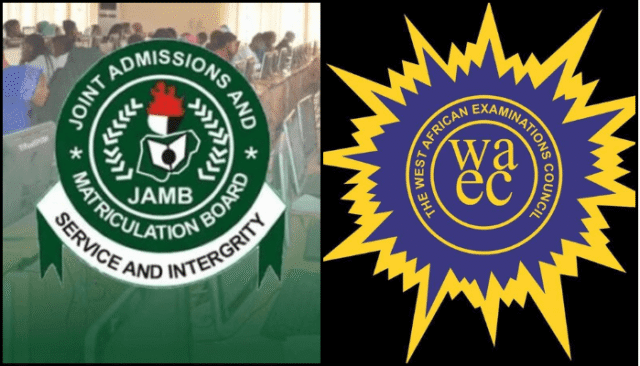Nigeria’s education system is facing an unprecedented crisis of confidence, as recurring technical glitches at the country’s primary examination bodies—JAMB and WAEC—choke public trust and threaten the integrity of national assessment standards. In separate but parallel incidents during 2025, both the Unified Tertiary Matriculation Examination (UTME) and the West African Senior School Certificate Examination (WASSCE) were beset by system errors, prompting repeated result withdrawals, hurried re-processings, and mounting anxiety among students, parents, and educators.
Education stakeholders have condemned these developments as deeply “unfortunate”, arguing that they drag Nigeria’s educational reputation through the mud. At stake is the credibility of our standardised testing framework and the trust in merit-based evaluation.
Table of Contents

JAMB’s UTME Meltdown: Software Patch Mishap Leaves Thousands in Limbo
In April 2025, the Joint Admissions and Matriculation Board (JAMB) was forced to repeat or retract the UTME results for nearly 380,000 candidates, after a bungled system patch resulted in scrambled scores. JAMB’s registrar, Professor Is-haq Oloyede, revealed that the error, traced to April 25, stemmed from a software patch not applied correctly on servers serving Lagos and the South-East, leading to misprocessed responses in both zones. Specifically, 65 centres in Lagos (206,610 candidates) and 92 centres in Owerri (173,387 candidates) were affected
The fallout was immediate—even JAMB’s credibility took a hit. The board ultimately ordered resits, citing “technical glitches” as the culprit—but critics, including the House of Representatives education committee, suggested human error, not purely tech failure, was to blame.
Many Nigerians questioned how such a critical error could go unnoticed until after results were issued. The repeat exercise further stoked concerns over JAMB’s computer-based testing (CBT) platform, revealing deeper underlying vulnerabilities.
WAEC Result Replay: Paper-Serialisation Feature Backfires
Just months later—in August—WAEC (West African Examinations Council) delivered another blow to public confidence. After publishing the 2025 WASSCE results, the council noted an unusually poor performance in English Language, prompting widespread outrage. Soon after, WAEC admitted to technical faults linked to its newly introduced paper serialisation security feature, which affected subjects including Mathematics, Biology, Economics, and English.
The council halted the result-checker portal, requesting affected candidates to re-check their scores later—warning that the initial postings were unreliable due to system bugs discovered during post-release review.
The Federal Ministry of Education praised WAEC’s swift transparency and urged calm, confirming that corrected results would be available within 24 hours. Beyond that, the ministry signaled its reform intentions—including phased adoption of CBT (starting November 2026) to restore confidence and guard against malpractice.
Education analysts echoed the urgency: these glitches and roll-backs, especially in flagship exams, risk eroding public faith in Nigeria’s standardised testing system.

Voices of Frustration: Parents, Academics & Tech Experts Speak Up
The emotional burden of these failures is palpable. Some parents described the decision to update WASSCE results as the “dumbest move”, suggesting it opens the door to unfair favouritism rather than insisting candidates rewrite exams if they failed.
Mrs. Margaret Ameh, a concerned mother, urged the government to strengthen secondary-level education and ensure proper teacher support—so failures don’t feed back into result manipulation.
Meanwhile, voices from the tech community—like expert Echezona Chinedu—called for greater accountability, independent audits, and thorough quality assurance. Without these, he warned, more students would suffer not from their ability but from the system itself.
Similarly, university planners and parent-teacher groups flagged concerns that glitches leave students anxious, question fairness, and harm the transitional credibility as institutions adopt CBT.
Rebuilding Trust: The Urgent Path to Reform in Nigerian Education
These twin emergencies expose more than system bugs—they expose policy and operational gaps. To recover credibility, Nigeria’s examination system must go beyond technical fixes:
- Robust infrastructure testing: Reliable results need bullet-proof systems and contingency protocols.
- Thorough pre-deployment trials: Especially for features like paper serialisation and CBT, rigorous pilot testing is non-negotiable.
- Accountability culture: Transparent inquiries, possible leadership reviews, and public updates are vital.
- Comprehensive stakeholder communication: Institutions must keep parents, schools, students, and the broader public informed promptly.
- Support structures for affected students: Mental health services, counselling, and clear redress paths are imperative.
- Strategic CBT transition: Initiating CBT in November 2026 must be accompanied by infrastructure investment, digital literacy efforts, and regional support—particularly in underserved areas.
The stakes could not be higher. If Nigeria continues to present itself as a nation whose examination bodies falter under pressure, the social contract of merit erodes. Future doctors, engineers, teachers—and their patients, clients and pupils—depend on systems that uphold credibility, fairness, and academic integrity.

Conclusion
The JAMB and WAEC technical fiascos of 2025 revealed glaring cracks in Nigeria’s educational edifice. These glitches are more than setbacks—they’ve tarnished confidence, disrupted lives, and highlighted systemic weakness. But they also offer a critical crossroads: a chance to rethink, rebuild, and reinforce the foundations of assessment reliability.
It’s time for all hands on deck—government, technologists, educators, parents and students—to mobilise behind a vision of fair, dependable examination systems. When trust is restored, our educational system will reclaim its role as an engine for opportunity, innovation, and national progress.
Join Our Social Media Channels:
WhatsApp: NaijaEyes
Facebook: NaijaEyes
Twitter: NaijaEyes
Instagram: NaijaEyes
TikTok: NaijaEyes
READ THE LATEST EDUCATION NEWS





